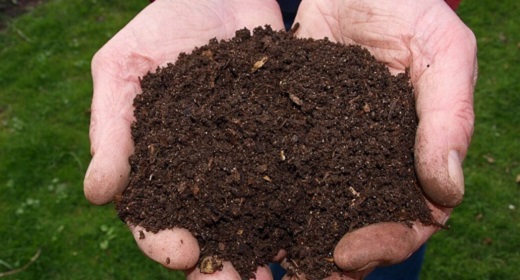There are so many things that could be contributing to fatigue and lack of energy each day.
-
Lack of activity – exercise can boost your energy levels! Try to move and exercise every day, even if you’re tired.
-
Eating too many refined carbs – carbohydrates are a great food source for quick energy, however, consuming processed carbs and refined sugars and flours can result in unstable blood sugar levels, leaving you tired and hungry. Focus on whole grains as often as you can.
-
Dehydration – you need to drink enough water every day to replenish the water lost through regular bodily functions. Not drinking enough throughout the day can reduce your energy levels and your ability to focus. Stay hydrated!
-
Poor sleep quality – getting a good night sleep is important, your body and mind both need it to reset and recharge. Getting into a good sleep routine will help boost your energy levels and improve your overall mood.
-
Not eating enough – your body requires a certain number of calories to fuel your body and to prevent your metabolism from slowing down. Not consuming enough calories and nutrients throughout the day can result in fatigue. Find out a healthy calorie range for your body and try not to go below it each day. Also, make sure you’re filling these calories with healthy, wholesome, and nutrient dense foods.
-
Inadequate protein intake – protein helps to boost your metabolism and promotes muscle growth. Focus on incorporating high quality proteins into diet each day to help keep your metabolism up and your energy high.
-
Stress – excessive and chronic stress can lead to fatigue and reduced quality of life. Stress can be physically, mentally, and emotionally draining and can have a negative impact on how you feel each day. Try to reduce your stress levels and find healthy ways to manage and respond to stress in your life.
-
Health conditions – fatigue can also be a symptom of several diseases and health issues. If your fatigue persists, make a visit to your family doctor to ensure that you are healthy and that there are no underlying medical causes for your fatigue.
what are the symptoms of fatigue?
The symptoms of fatigue can be physical, mental or emotional and typically result in exhaustion while trying to carry out daily activities. Here are a few common symptoms:
-
lack of motivation
-
drowsiness
-
difficulty focusing and learning
-
lack of concentration
-
not feeling refreshed after sleep/rest
-
sore or tired muscles
-
moodiness/irritability
-
slowed reaction time
-
GI issues
-
headaches
natural ways to boost your energy levels
NUTRITION
Focus on choosing whole nutrient dense foods that will help fuel your body. Also, focus on getting your three meals in and a good snack or two when you need them – ensuring that you’re eating regularly throughout the day and that you’re getting enough food/calories in, will help keep you energized (don’t skip meals). Avoiding processed foods and refined carbohydrates/sugars will also help keep your energy levels up.
HERE ARE SOME FOODS THAT CAN HELP BOOST ENERGY:
-
Nuts (almonds and cashews are great, pistachios, pecans, walnuts, etc.) – these are packed with protein, fibre, healthy fats and nutrients that will give you a punch of energy. ¼ cup or a small handful would make a good afternoon snack.
-
Natural nut butters are good to include in your diet as well. Try 1 tbsp. with an apple or banana or on a plain rice cake would be great. You can also stir into oats or include in a smoothie.
-
Seeds (chia seeds, flaxseeds and pumpkin seeds) are packed full of fibre, essential fats and other nutrients to boost your energy (try including these in your day, add chia or flax to your morning smoothie or sprinkle flax on eggs, try chia seed pudding, mix pumpkin seeds into a little nut mix or add to a salad). Lots of ways to enjoy seeds.
-
Fatty fish – a great source of omega 3 as well as B vitamins (which are important for the body to produce energy)
-
Leafy green vegetables (broccoli, bok choy, spinach, kale, etc.) – all loaded with vitamins/minerals (including B vitamins) as well as antioxidants that will help boost your energy and improve your health.
-
Whole grains (brown rice, quinoa, oats, spelt and whole wheat)
-
Fruit is loaded with fibre and vitamins/minerals that will help increase energy levels and promote good health (avocado, blackberries, bananas, dried figs, dried prunes, pears and raspberries) – all fruit is great, try incorporating 1-2 servings a day.
-
Lean Protein – a powerful energy source (eggs, chicken, fish, lean turkey, lean beef, etc.)
-
Beans/Legumes (chickpeas, lentils, black beans etc.). Add these to salads or bowls or try making a healthy bean burger. Hummus is also great, 1-2 tsp. of hummus with some raw veggies would be a good little snack.
-
Sweet Potato
-
Dark chocolate – including a square or two of dark chocolate can help (something 75% or higher). You could try 1 square with some almonds or nuts for a snack.
SUPPLEMENTS
There are a number of different vitamins and supplements that you can take to help boost your energy levels.
-
Vitamin B 12 plays a huge role in energy production in the body. It can be found naturally in some animal proteins including meat, fish and dairy. Taking a supplement would be a great for you. You can get this in a number of formats (including sublingual – under the tongue) and is inexpensive.
-
Iron – this is necessary to transport oxygen to your body’s tissues. If you’re low in iron, extreme fatigue can result. Ensure that you’re incorporating a variety of iron rich foods in your diet each week (red meat, chicken/turkey and seafood are great source of iron. You can also get iron from beans, dark leafy greens, dried fruits (natural) and peas).
-
Ashwagandha & Rhodiola Rosea – these are both adaptogens (botanical supplements) which can help protect the body against the effects of mental and physical stress.
-
CoQ10 – this is a powerful antioxidant that is found in every cell of your body and is need for energy production. Our body produces CoQ10 and we can also get it from our diet through certain meats, fish and peanuts. As we age, our ability to produce CoQ10 is decreased, so supplementing may be beneficial later in life.
-
Magnesium and melatonin may help promote good sleep, which is essential for good health and for increasing energy levels.
-
There are some combination supplements that you can buy that are formulated specifically for energy, sleep and stress.
Although supplements may be beneficial in helping you stay alert and energized each day, they are not a substitute for what your body needs naturally – focus on getting adequate sleep, eating healthy foods, drinking lots of water and exercising daily.
LIFESTYLE
-
Make sure you’re getting enough sleep each night. Focus on getting into a good sleep routine; get to bed at the same time each night and avoid screen time before bed.
-
Keep your stress levels down and find healthy ways to manage them. Stress can make you feel tired and completely drained. Physical, emotional, and mental stress can all take a toll.
-
Stay active – regular exercise can help boost your energy levels and improve your overall health.
-
Don’t over pack your day – find time to relax each day.
-
Stay hydrated! Keep focused on getting lots of water in each day.
-
Avoid smoking and limit alcohol consumption.
-
Yoga and mindfulness practices – this can help reduce stress, improve sleep and promote relaxation.
-
Be social – get out and spend time with family and friends. This will boost your mood and enhance your overall wellbeing.
Making a healthy lifestyle change can help improve your overall health and leave you feeling more energized and focused each day! Make your health a priority – fuel your body with the foods it’s needs each day and be sure to treat your body with love and kindness.











































